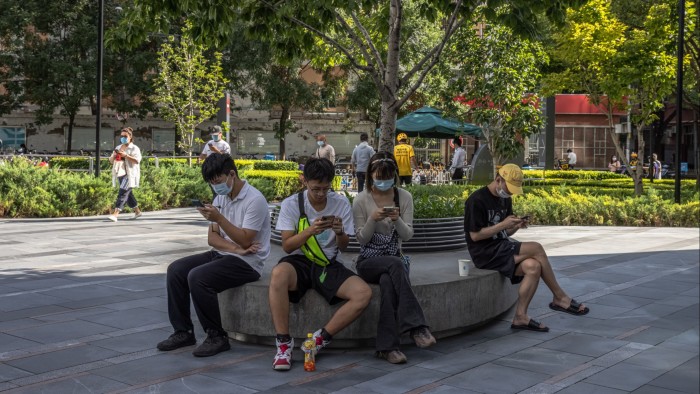China seeks to ease video game industry’s fears of another crackdown

Simply sign up to the Chinese business & finance myFT Digest -- delivered directly to your inbox.
Beijing is acting quickly to ease fears of another regulatory crackdown on China’s video game industry, including firing a prominent official and convening consultations on new measures at short notice, according to people familiar with the matter.
Shares in the leading online gaming companies Tencent and NetEase fell sharply last month after the National Press and Publication Administration proposed guidelines that suggested much tighter controls on the world’s largest gaming market.
The stocks staged a partial recovery at the end of December after the regulator approved the release of 105 games, the most in 17 months, and said it would support “healthy development” of the industry and study responses to its plans.
Beijing also ousted the head of the publication bureau of the Communist party’s propaganda department, responsible for the country’s gaming regulatory body, at the end of the month, according to four people familiar with the matter.
Feng Shixin was a senior figure who had been seen at events discussing video game approvals and real-name verification requirements for gamers. He was removed from his position for not consulting top economic supervisors or incorporating the opinions of key gaming companies before releasing the draft, said two people close to the regulator. The propaganda department did not respond to a request for comment.
“Although the rising regulatory power was widely anticipated in the gaming industry, this proposal was still shocking because there was insufficient prior communication and the terms were extremely stringent,” said a person with direct knowledge of the matter. Reuters first reported Feng’s firing.
“We were told before that most of the regulation would be focused on minors. However, many of the strict measures in the final draft turned out to control all users, making us really nervous,” said an executive from a gaming start-up who did not wish to be named.
The proposed regulations aim to curb spending and engagement on online games. The draft had been in the works for several years and was first presented to game companies and industry experts at the beginning of 2021.
According to two people familiar with the 2021 draft, the version released last month differed substantially from the previous one, with a significant increase in supervision and more detailed directives. Its release sparked an $80bn stock market sell-off and led to widespread criticism of the government’s handling of the situation.
Leading game developers have now been summoned by Beijing and provincial regulators for closed-door seminars to discuss the feasibility and impact of the draft regulations, according to four people familiar with the situation.
The process normally takes three to six months, but this one is expected to be completed as early as the end of January, said two people close to the regulators.
Tencent and NetEase shares are still 6 per cent and 8 per cent lower, respectively, from where they were immediately before last month’s announcement. The numbers reflect Huatai Securities’ research suggesting Tencent’s top 20 mobile games and NetEase’s top 15 mobile games would suffer revenue declines of 6 per cent and 8 per cent, respectively, if user spending were strictly limited.
“Multiple provisions of this regulatory draft are like targeted explosions, accurately and brutally hitting the monetisation and market models of game companies,” said the gaming start-up executive. “The panic caused by this draft requires actual government action to alleviate it truly.”
China’s video game market had been slowly recovering from rules that authorities implemented in 2021 to limit the time minors could spend on gaming. Game approvals had been put on hold, and the NPPA only began granting licences for new video games in April 2022.
“The industry is prepared to face another wave of regulatory crackdown, and some have already reacted to tweak their games according to the draft,” said a senior product manager at a gaming company who wished to remain anonymous.
Additional reporting by Nian Liu in Beijing
Comments